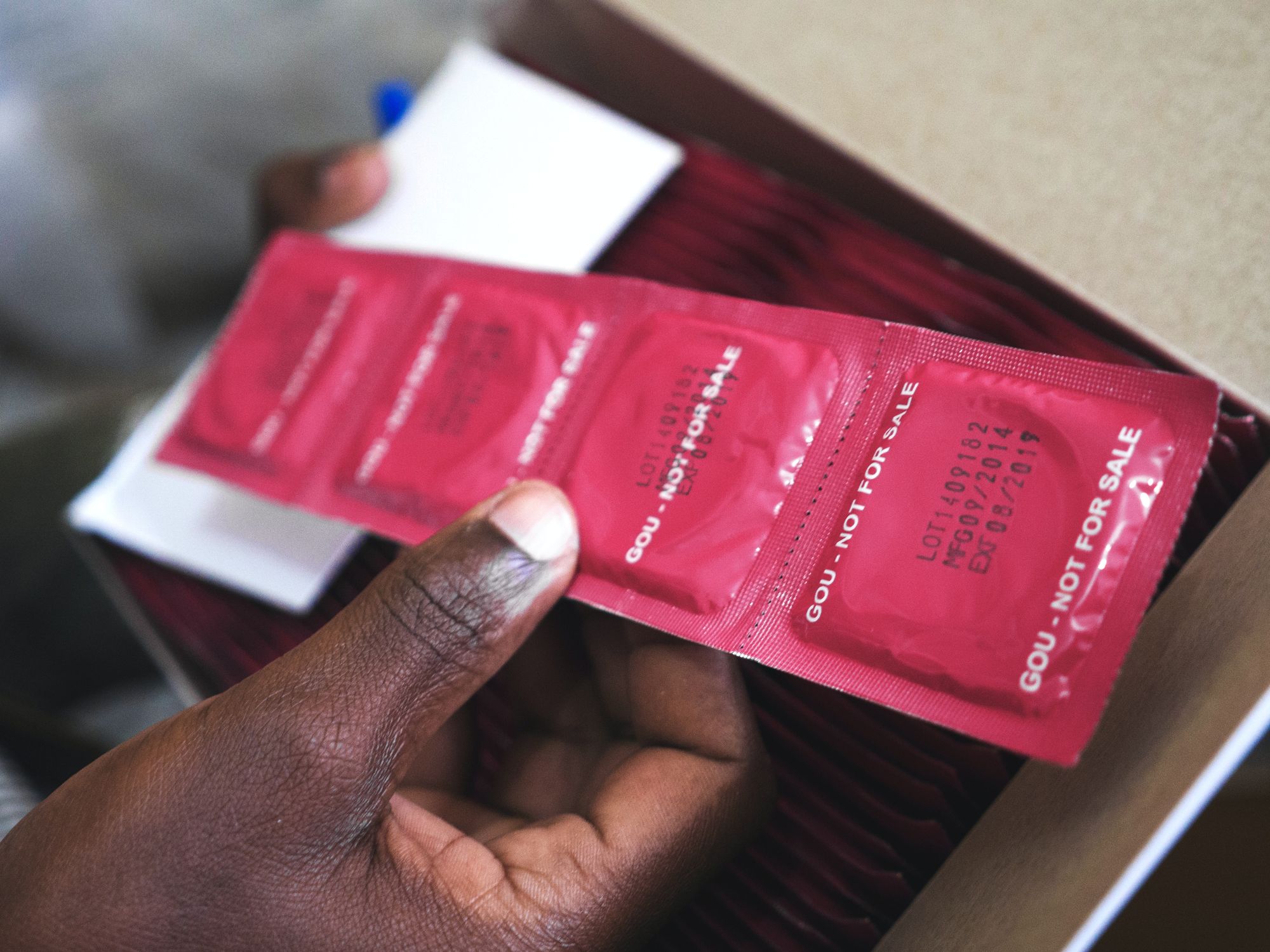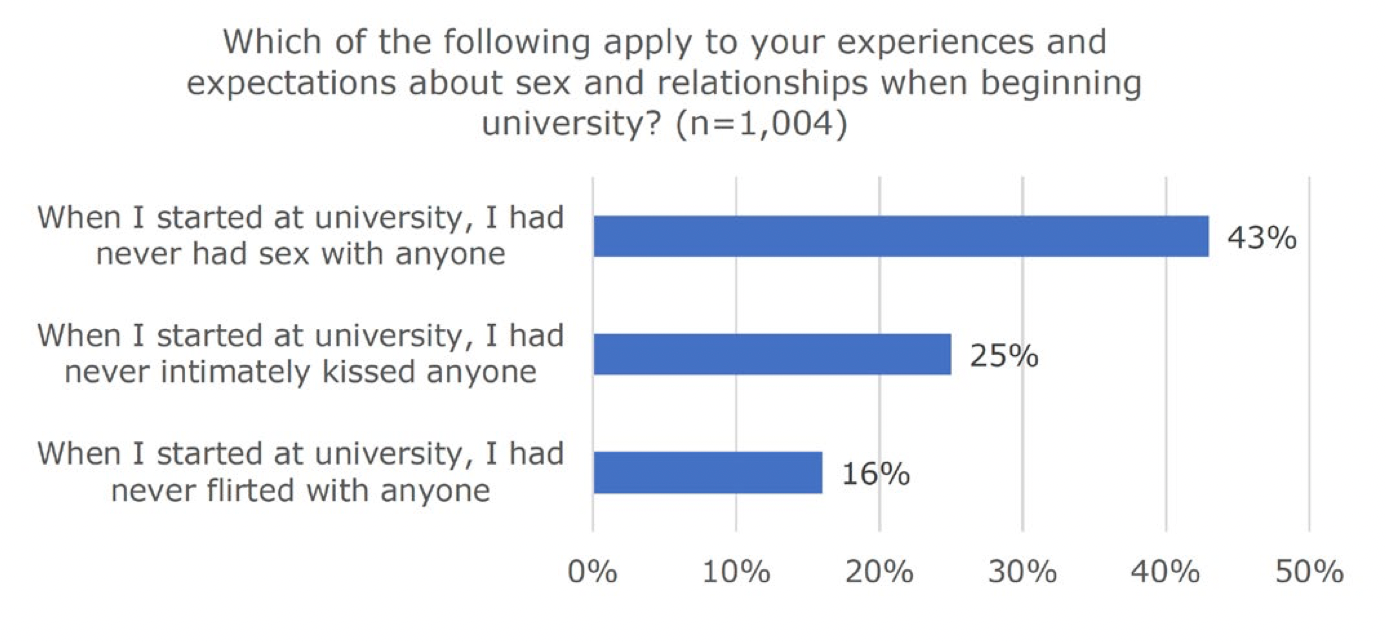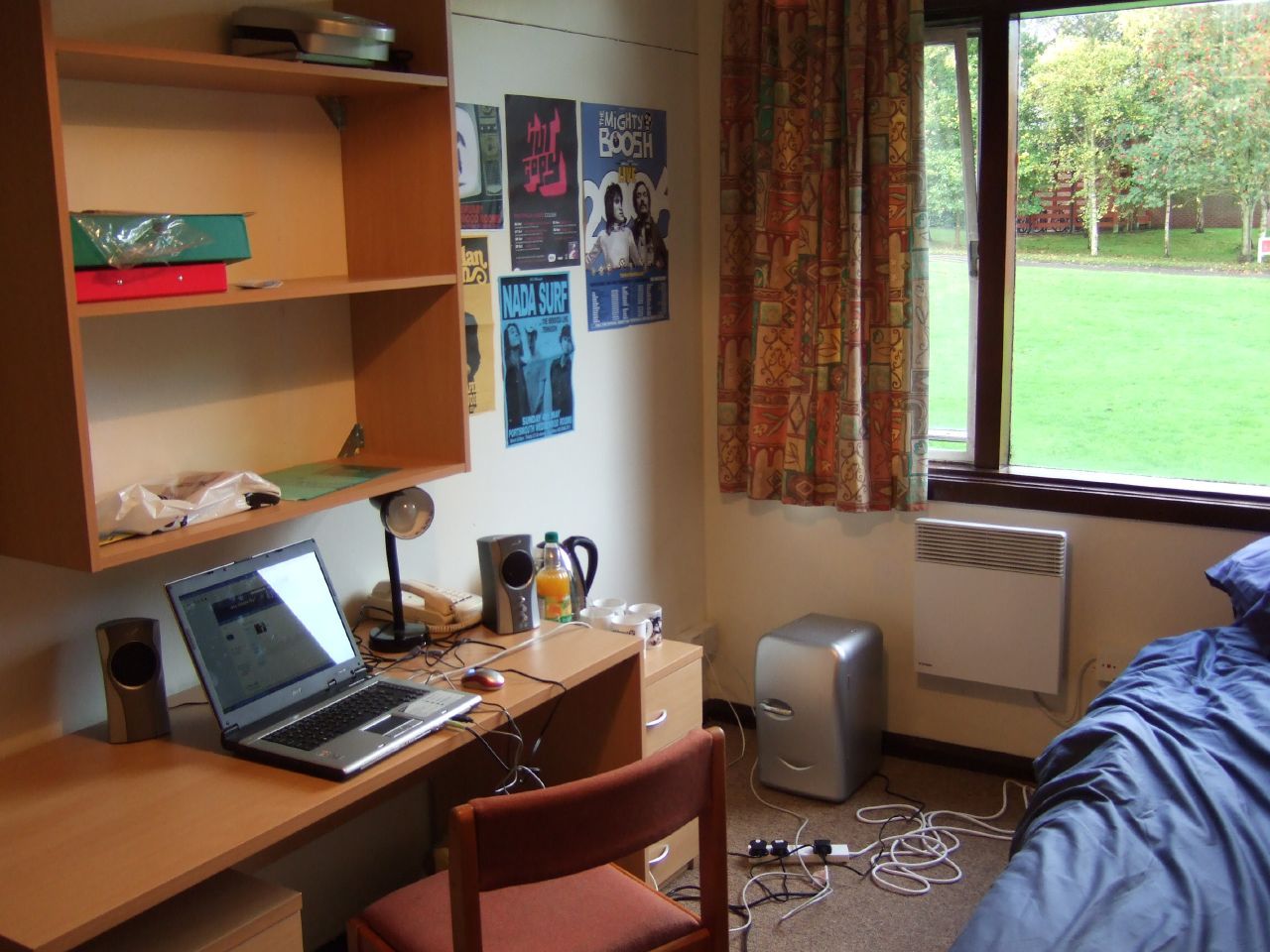By Nel Roden, Second Year English
Hookup culture: the encouragement of casual, uncommitted sex encounters without necessarily including bonding or emotional intimacy. As university is often a space for young people to explore their sexuality—perhaps for the first time—the infamous one-night stand is portrayed as part of the university experience. But how empowering, and how prevalent, really is hookup culture?
Hookup culture is endorsed in a multitude of ways for young adults, particularly for students starting university. Whether it be propagated through ‘lad culture’, pressures to lose your virginity, or the idea that you should be exploring your options while you’re in your ‘sexual prime’; the expectation to engage in casual sex is seemingly high amongst the student population.

Though, at first, it may seem like every student is sharing their stories of both tragic and terrific one-night stands, the HEPI 2021 Student Sexual Relationships Survey suggests otherwise.
Among those surveyed, only one in nine (11 per cent) expected to have sex during Freshers’ Week, with only 9 per cent of participants actually engaging in sexual activity with a new partner. This put sex ‘near the bottom of the list of expectations’ for new students, only marginally above the expectation that they might smoke a cigarette (6 per cent) and demonstrating that, in reality, casual sex may not be as prevalent as we might assume.

Irrespective of the reality behind student experiences of casual sex, the debate over how liberating hookup culture is remains widespread.
A prevailing view in fourth-wave feminist discussion is that participation in hookup culture can be a way for women and LGBTQ+ identifying people to subvert society’s double standards in regards to sex—a means to reclaim your sexuality and liberate your desires from the patriarchal confines of sex.
In more recent years, critics of so-called ‘choice feminism’ have called for a closer examination of hookup culture’s patriarchal influences
In their episode ‘The Whorigin Story’, the hosts of the Binchtopia podcast noted that it is ‘powerful and important that women are, in this day and age, able to own their sexuality’—that is, to have the liberty to express their sexuality freely. One-night stands can be exhilarating and spontaneous, a way to be in the driver's seat of your sexual experiences, however, it is not exempt from judgement. A study on slut shaming in adolescence found that ‘80 percent of participants reported having witnessed the use of sexist insults (‘slut’) online’. If it is the case that women’s sexual expression is culturally stigmatised, reclaiming and exercising their sexuality in whichever way they please can be a powerful feminist statement.
In more recent years, critics of so-called ‘choice feminism’ have called for a closer examination of hookup culture’s patriarchal influences, arguing that one-night stands primarily serve to fulfil male sexual needs. Perhaps, by interrogating our desires and their origins, we are able to gain some critical insight into how our sexualities are influenced by patriarchal ideals.
There’s just no way people actually enjoy hookup culture. There’s no way it makes you fulfilled. I think people just do it because society says it’s what everyone does
— Spoony (@SpoonyTheBest) September 25, 2022
A 2017 study examining the orgasm disparity showed heterosexual women to be the demographic that experiences the least orgasms during sex. As the spontaneity of casual sex does not always allow for the opportunity to establish sexual boundaries, a failure to build a foundation for equal sexual pleasure could account for this disparity. Perhaps this signals a worrying lack of understanding, or an unwillingness to understand, female sexual pleasure and anatomy. HEPI’s survey found that male heterosexual students were the least receptive to receiving learning opportunities about sex, relationships and consent, with only 39 per cent agreeing that this should be implemented in sex-ed.
The Binchtopia podcast hosts note that ‘sexual choices are not made in a vacuum’. That is to say—in some way, shape, or form—everyone’s sexual preferences have been influenced by external narratives. Online studies found that among the 11 to 13 year old’s surveyed, more than half (51 per cent) had seen internet pornography, with the percentage rising to 66 amongst 14 to 15 year old’s.
Growing up in a digital age where, for many, internet pornography is the first introduction to sexual relationships, the unrealistic narratives depicted in pornography may have exacerbated the idea of sex as a performance for young boys and girls. So while the intention behind engaging in casual sex may be, at face value, an empowering decision, it is important to dissect the origins of these decisions.
In order to gain a wider perspective on casual sex culture, Epigram spoke to a University of Bristol student about hookup culture within the gay community.
When asked about feeling empowered while engaging in hookup culture, he said that he initially felt ‘empowered at finally being able to explore my [his] sexuality’ after moving to University from a small town with an even smaller queer community. He went on to explain how ‘this initial excitement wore off and the sense of fulfilment faded too’, with issues such as ‘STD’s and complicated sexual relationships’ eventually arising.
Sex survey delves into the less glamourous side of Bristol's boudouir business
University hook up culture: why you shouldn't worry about your low libido
He concluded that ‘one-night stands can of course be fun, but the intensity and expectations create an environment that I find harmful’.
Ultimately, everybody who chooses to engage in hookup culture has a nuanced experience—it is impossible to make a universal claim as to whether casual sex is empowering or not.
Featured Image: Flickr / Mike Mantin
Do you think student hookup culture can be empowering?









